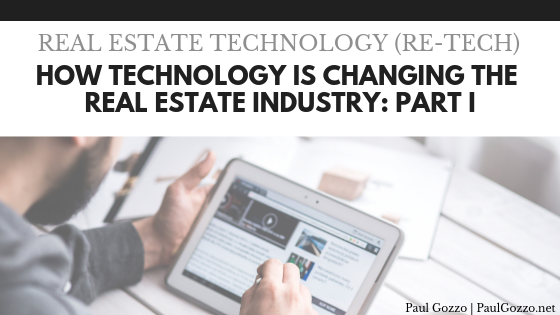It comes as no surprise that technology, especially mobile app development, has had an impact on the convenience of our everyday lives. As the mobile app industry continues to boom, many industries are utilizing mobile apps to improve relationships between customers and businesses. The real estate industry is no different. While the real estate sub-sector of financial services is one of the last to adapt, technologies within this space are rapidly advancing as augmented reality (AR), and Virtual Reality (VR) continue to move forward and improve. As AR and VR continue to evolve, the capabilities for real estate professionals and customers will continue to rise.
The statistics grow every year with how much time individuals are spending on their mobile devices every day. In a fast-paced world, many of us search for ways to maximize efficiency in our day to day tasks. Today, important information can be accessed directly by tapping into previously locked data resources, leading to dramatic advances in research, speeding up timelines, and shrinking a business category (Real Estate) that was once seen as “local.” Residential homes are being bought and sold at faster rates than ever before thanks to modern technology aggregators collecting and making information available while providing the tools, education, and platforms to make navigating diligence much easier than in the past. While the main hub is still the internet itself, very specific niche cloud infrastructures are being built to collect and mine data at a fast pace. This is also where individual behavior like social media interaction and simple search engine activity is collected and studied by machines who then spit out more predictable analytics for companies targeting consumers. So while access is greater and easier, the more this information is used, the more finite the study can get, which then circles back and speeds up the process to provide yet more data. But do not be scared; this really shouldn’t disturb you. While some folks feel the study of their behavior is a violation of their privacy, I see it more positively as a way to navigate more efficiently and accurately, thus saving me time.
For single-family residential real estate specifically, whether it is searching for a place to rent or buy, you no longer have to leave your office or residence to make significant progress toward your goal. Now, with AR and VR entering the industry, the clarity from your research will be even clearer! Here are a few ways this technology will help the industry:
Improved interaction with the property; Augmented Reality and Virtual Reality
AR and VR improve the interaction between properties and clients, letting potential buyers have a seamless view of the property before purchase. 2D images can be changed into 3D, providing a better look into homes. Clients can move through the house without actually being there, proving to be helpful when making decisions about room sizes and furniture placement. Not only does this save time for the clients, but it won’t waste real estate professionals valuable time showing homes to the wrong clients.
Targeted Ads
Using artificial intelligence to follow consumer behavior and targeted ads are a great way to help businesses grow and reach a wider customer base. Targeted ads can be organized to reach specific demographics and locations and can be used by real estate business owners as a tool when recruiting and training staff or for their staff to market themselves to customers. Similarly, third-party technology can be used to recommend properties that match a certain search history or criteria of the potential customer whether they are a homeowner or investor. Generally, this type of expense comes with a pretty well-defined return on investment (ROI) calculation that should provide enough feedback to the purchaser to determine if it is indeed working for their intended purpose.
Marketplaces and Mobile apps
Mobile apps provide an added convenience for real estate companies by allowing them to be more accessible. Customers can utilize data and tools much like they have been able to for a very long time now when studying public companies that trade on various stock market exchanges. Similarly, you can now set up various “searches” based on different criteria and then receive notifications when your criteria are met so in one sense, it is like having your own filter running an algorithm explicitly tailored to your wants and desires. These types of investor platforms and their consumer-facing applications are the future of single-family residential real estate investing and something I will continue within the next part of this blog series.
Paul Gozzo works in Business Development for RESICAP, a single source service provider to large institutional owners of single-family residential real estate. RESICAP owns and manages ten different business lines based out of Atlanta, operating in 35 states with 950 employees and over 3,000 sub-contractors.
Title/Curative, Compliance, Preservation, Valuation, Acquisition, Construction (renovation & ground-up), Property Management, R&M, Dispositions.

